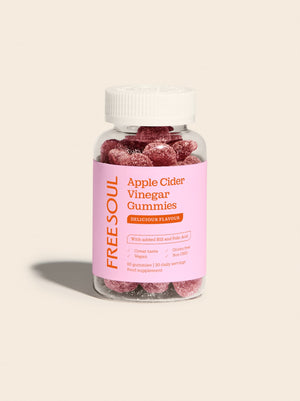Balanced blood sugars are a hot topic in health and wellness right now. And for good reason! Learning to balance your blood sugar level is a valuable concept for everyone to learn and understand, not just individuals with diabetes or pre-diabetes. Stable blood sugars help to maintain steady energy levels, support weight management, promote brain function prevent chronic diseases, and contribute to consistent mood and mental well-being. Therefore, we wanted to give you some actionable tips and tricks on how you can maintain balanced blood sugar levels.
Eat a well-balanced diet
A great place to start with balancing blood sugars is to look at your overall diet. Focus on consuming a diet full of a variety of whole foods, including lean proteins, healthy fats, complex carbohydrates, and plenty of fibre. Including a range of whole foods in meals and snacks will ensure you are getting the nutrients your body and support good digestion.
Be conscious and mindfully while eating
Being mindful and present when eating helps with portion control and decreases the likelihood of overeating. Mindful eating also helps to increase meal satisfaction and enjoyment. By consciously eating slower and more mindfully it will increase one's awareness of food choices and recognition of hunger and fullness signals.
Include protein with each meal
By including protein in each meal and snack it helps to slow down the digestion and absorption of carbohydrates, which can help stabilise blood sugars and prevent large blood sugar spikes. Include lean sources of protein such as chicken, fish, tofu and legumes into meals. Combining fruit with a handful of nuts is an example of an easy way to add protein to a fruit snack.
Opt for complex carbohydrates
Complex carbohydrates have a lower glycemic index (GI) than simple carbohydrates, meaning they are digested and absorbed more slowly, resulting in a slower rise in blood sugar levels. Examples of low-GI foods include whole grains, non-starchy vegetables, nuts and legumes.
Limit sugary beverages
Sugary drinks like soda, fruit juices and sweetened teas and other beverages can cause a rapid spike in blood sugar levels. Choosing water, sugar-free or unsweetened options is best for maintaining stable blood sugars.
Regular exercise
Exercising regularly can help improve insulin sensitivity (how well the body responds to the hormone insulin) and aid in balancing blood sugar levels. This can look different for everyone, but aiming for 150 minutes of moderate-intensity aerobic activity (e.g. walking, running, biking, swimming) per week.
Get enough sleep
A lack of sleep can affect insulin sensitivity and lead to imbalances in blood sugar levels. One night of disturbed sleep is enough to disrupt the body’s hormonal balance and impair glucose metabolism making it harder for the cells to take up glucose from the bloodstream, leading to elevated blood sugar levels. Aiming for 7-8 hours of quality sleep each night is a great place to start.
Manage stress
Having high-stress levels can contribute to elevated blood sugar levels, as the body is trying to ensure it has the energy to get you out of the perceived danger. Therefore, finding healthy ways to manage stress and relax is important for stable blood sugar levels. Such as practising mindfulness, deep breathing, yoga or engaging in hobbies you enjoy.
Maintaining balanced blood sugars is important for overall health and well-being. By better understanding how to balance your blood sugars and adopting healthy lifestyle habits such as eating well, mindful eating, including protein with each meal, choosing complex carbohydrates as often as possible, participating in regular exercise, getting good quality sleep and managing stress, you can effectively maintain stable blood sugar levels. This will not only support optimal energy levels and weight management but also promote brain function, decrease the risk of chronic diseases and enhance mood and mental well-being. Remember, small changes in daily habits can make a significant difference in an overall healthy lifestyle. It’s the little thing you do every day that matters in the long run.
Written by Harriet Lidgard
Nutritionist (BSc) & Health Coach
**At Free Soul, your wellbeing is our priority, and although we pride ourselves on our expertise in women's health and wellbeing, it is important to acknowledge the individuality of each person. Features published by Free Soul are not intended to treat, diagnose, cure or prevent any disease, or replace the advice of your GP. We always recommend consulting with a healthcare provider if you encounter any health concerns, and we’ll always be here to support you so you’re never alone on your journey.







